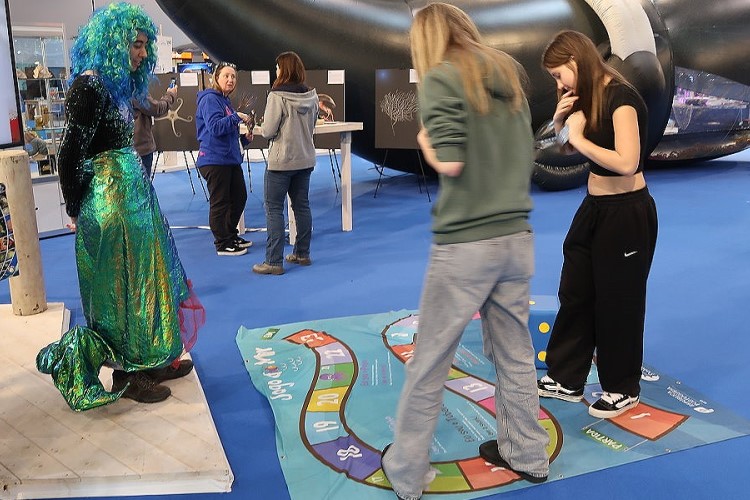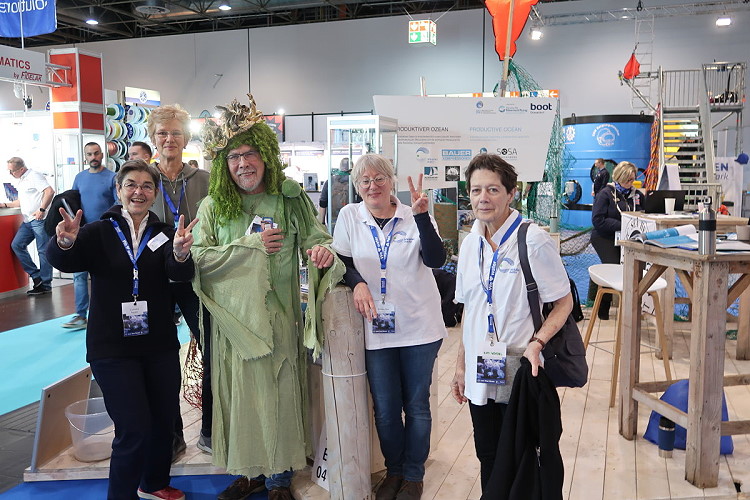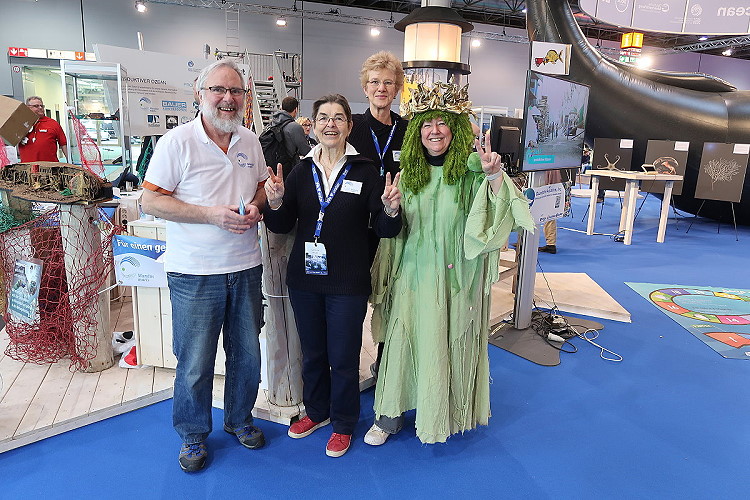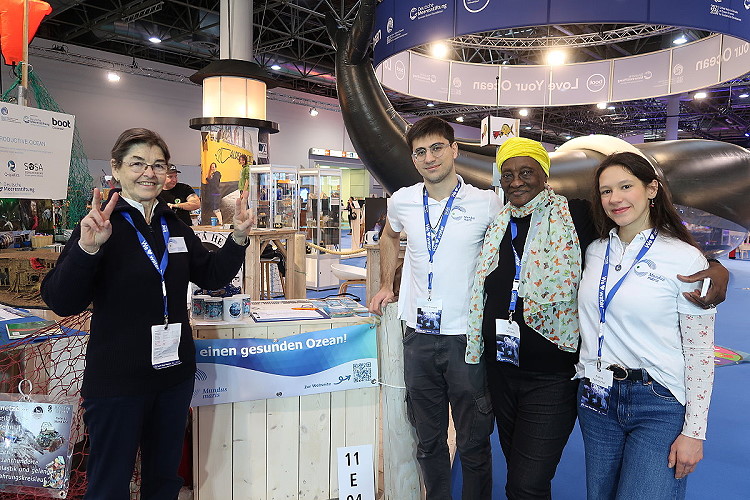This year’s motto at the Boot fair in Düsseldorf, from 18 to 26 January 2025, was ‘We love water’, complete with a specially composed song alerting all exhibition booths to the morning opening with decibels drowning any conversation. So, we and all other partners on the ocean conservation platform ‘love your ocean’, coordinated by the German Marine Foundation, got ready for the flow of visitors wanting to see more than luxury yachts, diving equipment or what’s new in sailing and paddling.
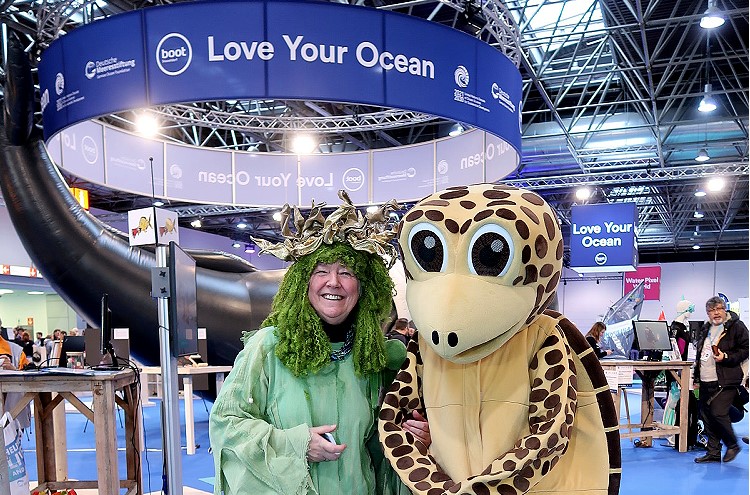
Families were particularly numerous during weekends, while lots of school classes completed the mixed public during the week. Though it felt like a little less visitors overall in our Hall 11, we enjoyed an unprecedented number of interested guests engaging in sometimes long conversations, seeking information and sharing their own experiences. Lots of kids had fun with the ocean game, demonstrating that they often knew more about the ocean and its inhabitants that accompanying adults.
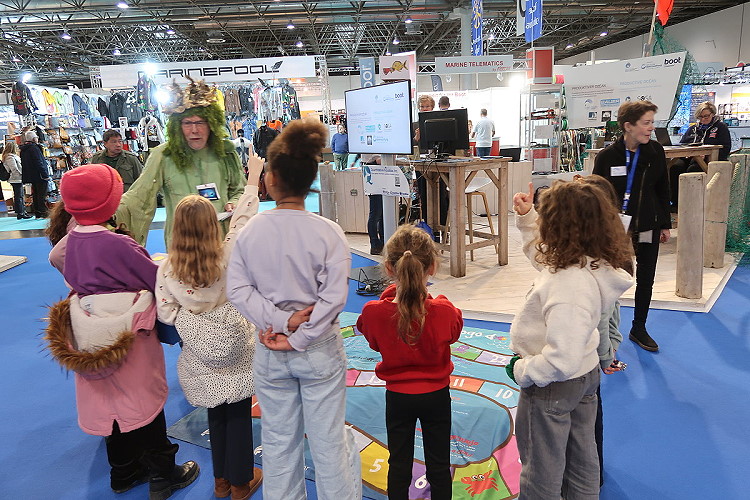
Seven school kinds enjoying Ocean Game
And the fish sound quiz contributed by Q-quatics, the scientific host of the largest and most respectful information system on all fish species known to science, surprised and enthused many who still had believed that fish are mute.
We were particularly happy to serve quite a number of school teachers seeking teaching materials and support. Amazingly, the ocean as the largest connected ecosystem on the planet does not figure in the school curriculum, even though it provides us with the oxygen of every second breath we take, stabilises the climate, has taken up 90% of the heat industrial processes have emitted since the start of industrialisation, and more. It is thus all the more valuable that these teachers are committed to instil a sense of citizenship and stewardship for the ocean in the anthropocene. While climate change is by now on its way, it is paramount to become more conscious about the cumulative effects of the way particularly wealthy economies are run and the urgency of reducing the waste and damage.
Our neighbours at the fair, Plastic Fisher, composed this fish from CapriSun garbage collected at beaches. Garbage to artsy creations? Yes, but better no garbage in nature.
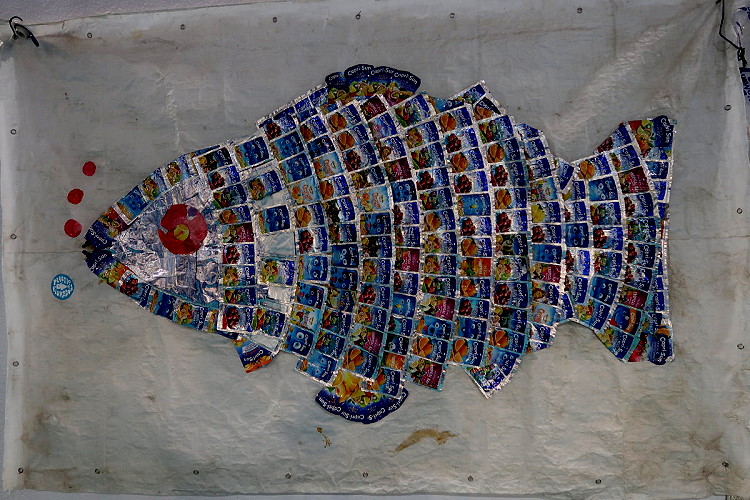
Cornelia Nauen, President of the organisation, also gave three talks at the Water Pixel stage:
- Tuesday, 21 January, about healthy fish from a healthy ocean,
- Wednesday, 22 January, about the effects of ocean warming ‘Land under’, and
- Saturday, 25 January, about how the FishBase Guide app helps to regain some control over what fish to buy, eat or catch when sustainability concerns are in the foreground.
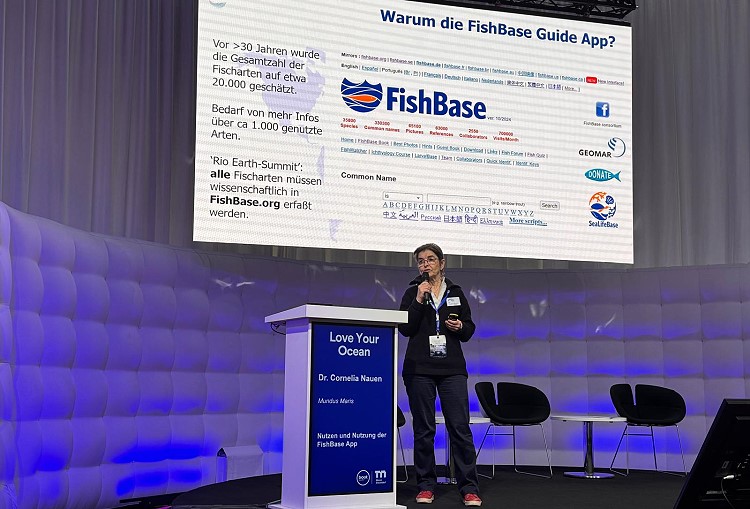
To see the slides of each talk, click on the links below.
|
Mundus maris |
Mundus maris | Mundus maris |
|---|---|---|
 |
 |
 |
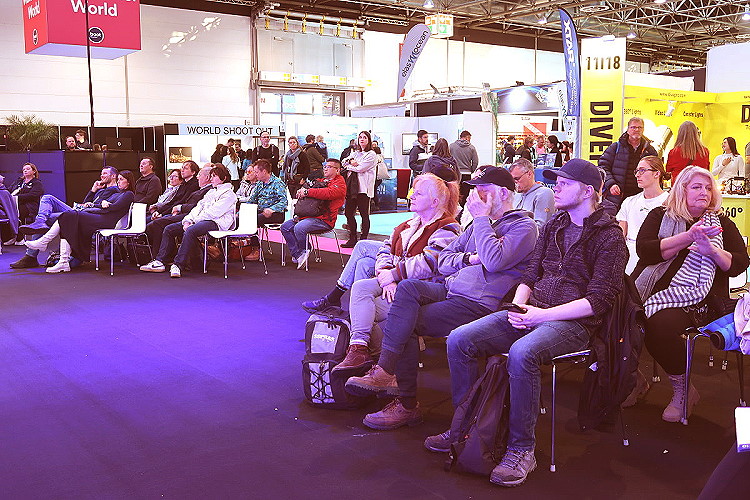
At the end, Claudia Mense, chief organiser of Mundus maris, says: “We’re getting better from one edition of the fair to the next. When you receive the thank you emails from happy teachers, you know that it was all worth the effort.” Cornelia Nauen adds: “A big thank you also to the wonderful volunteers who help to make it happen – and more fun.”
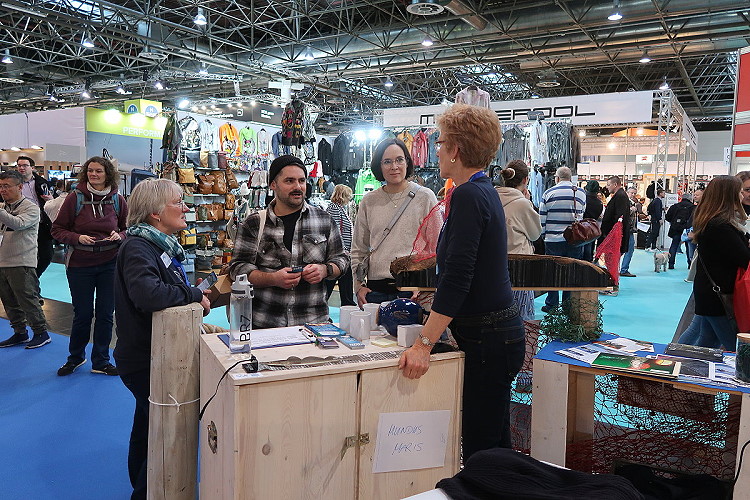
Claudia providing info at the stand of Mundus Maris
Mundus maris mobilised 12 volunteers to staff the booth each day in groups of four so as to cover the many conversations, to respond to the interest in the games and demands for information and support.

